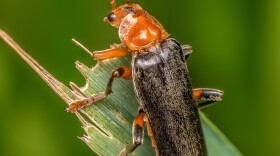Across the country, whether in your backyard, a park, or the woods, if you gently turn over some rocks or a piece of wood, chances are you’ll find them.
Pill bugs. Sow bugs. Doodle bugs. Roly-polies. From around the world, there are at least another dozen nicknames for these small animals that are more scientifically referred to as terrestrial isopods, or woodlice.
Many people assume they are insects. Try counting the number of legs the next time you find one. Most species have 14 legs, a lot more than our six-legged insect friends.
They’re actually crustaceans, so more closely related to lobsters, shrimp, crabs, and crayfish. And they’re unique among their fellow crustaceans as they are the only ones to inhabit land.
Despite living on land, they still breath through the use of gill-like organs located in their hind legs. Because they can easily dry out, living in moist areas is important for their survival—the reason they are commonly found under rocks, rotting logs and vegetation, and other places that remain dark and damp.
While they are infamous for rolling into a tight ball for protection, most species of woodlice don’t have this ability. Many species rely on the tried and true tactic of running away, or playing dead, to avoid becoming a meal.
As attentive mothers, females carry up to 200 eggs in a brood pouch on the underside of their bodies. When then eggs hatch, the young will remain in the protective pouch for up to 3 weeks before venturing out on their own.
With a bit of luck, woodlice can live to a ripe old age of 2 to 3 years.
Bug Bytes is made possible with support from the Greater Montana Foundation— encouraging communications on issues, trends, and values of importance to Montanans—and by the Missoula Butterfly House and Insectarium, produced in association with Montana Public Radio.





